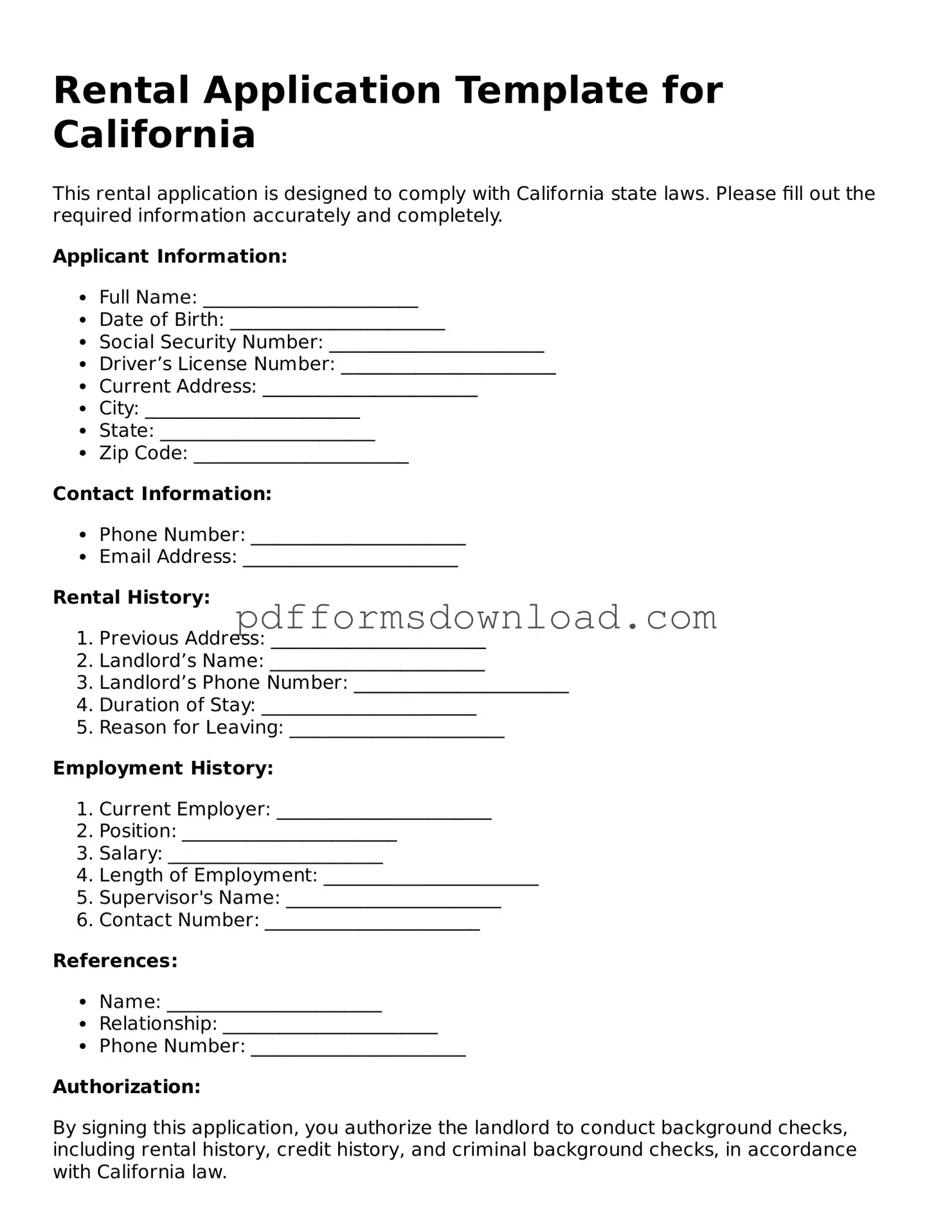What is a Rental Application form?
A Rental Application form is a document that potential tenants fill out to apply for a rental property. It collects essential information about the applicant, including personal details, rental history, employment information, and references. Landlords use this information to evaluate whether to approve or deny the application.
Why do I need to fill out a Rental Application?
Filling out a Rental Application is a standard step in the rental process. It helps landlords assess your suitability as a tenant. By providing your information, you allow them to verify your background, income, and rental history, which can help ensure a good fit for both parties.
What information is typically required on a Rental Application?
Most Rental Applications ask for your name, contact information, social security number, employment details, income level, and rental history. You may also need to provide references and consent to a background check. This information helps landlords make informed decisions.
Is there a fee to apply?
Some landlords charge an application fee to cover the cost of processing your application and conducting background checks. This fee varies by property and location. It’s important to ask about any fees upfront to avoid surprises.
How long does the application process take?
The application process can take anywhere from a few hours to several days, depending on the landlord or property management company. They need time to review your application, check your references, and conduct background checks. It’s a good idea to follow up if you haven’t heard back within a reasonable timeframe.
What happens if my application is denied?
If your application is denied, the landlord should provide you with a reason. Common reasons include insufficient income, poor rental history, or negative background check results. You have the right to ask for this information, and you may also want to check your credit report for any errors.
Can I appeal a denied application?
Yes, you can appeal a denied application. If you believe the decision was based on incorrect information or if you have mitigating circumstances, reach out to the landlord or property manager. They may be willing to reconsider your application if you provide additional information or documentation.
How can I improve my chances of being approved?
To improve your chances, be honest and thorough when filling out the application. Provide accurate information and include references who can vouch for your reliability as a tenant. If possible, offer to pay a larger security deposit or provide proof of steady income to strengthen your application.
What should I do if I have a unique situation, like a criminal record or poor credit?
If you have a unique situation, it’s best to be upfront about it in your application. Many landlords are willing to consider applicants with a criminal record or poor credit, especially if you can demonstrate that you have made positive changes. Consider providing a personal statement explaining your circumstances and how you have improved your situation.

